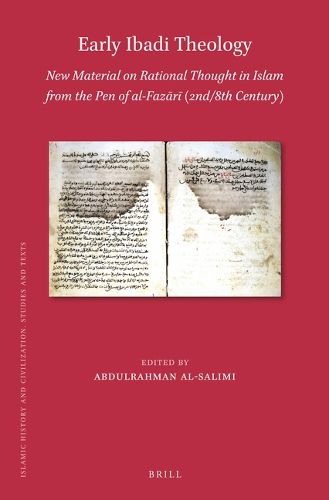Readings Newsletter
Become a Readings Member to make your shopping experience even easier.
Sign in or sign up for free!
You’re not far away from qualifying for FREE standard shipping within Australia
You’ve qualified for FREE standard shipping within Australia
The cart is loading…






Al-Fazari’s writings are a unique source of information about Ibadi teachings on ‘ilm al-kalam and the early development of this branch of religious knowledge. It is for this reason that scholars of Islamic theology are particularly interested in early Ibadi theology. In this volume newly discovered, re-edited texts by al-Fazari are presented, with previously lacking fragments included, texts that had already begun to offer new perspectives on Islamic 'ilm al-kalam, and on its origins and the sources of its concepts and debating techniques. In their revised state these Ibadi texts represent a major contribution to scholastic theology. They demonstrate how their respective theological debates already took place at the beginning of the second/eighth century and how associated ideas, as well as related sects and treatises, remained current for some time afterwards, thereby contradicting earlier claims that these debates started in the third/ninth century.
$9.00 standard shipping within Australia
FREE standard shipping within Australia for orders over $100.00
Express & International shipping calculated at checkout
Al-Fazari’s writings are a unique source of information about Ibadi teachings on ‘ilm al-kalam and the early development of this branch of religious knowledge. It is for this reason that scholars of Islamic theology are particularly interested in early Ibadi theology. In this volume newly discovered, re-edited texts by al-Fazari are presented, with previously lacking fragments included, texts that had already begun to offer new perspectives on Islamic 'ilm al-kalam, and on its origins and the sources of its concepts and debating techniques. In their revised state these Ibadi texts represent a major contribution to scholastic theology. They demonstrate how their respective theological debates already took place at the beginning of the second/eighth century and how associated ideas, as well as related sects and treatises, remained current for some time afterwards, thereby contradicting earlier claims that these debates started in the third/ninth century.